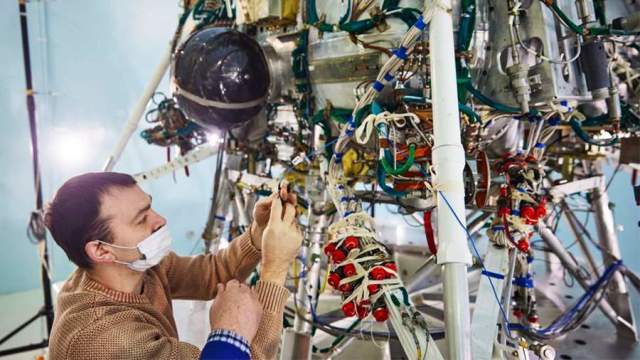The Luna-25 automatic station will be launched in July 2022. This was announced on October 5 by the head of the state corporation "Roscosmos" Dmitry Rogozin.
He also called the timing of the launch of the Russian-European ExoMars-2022 mission to Mars to search for evidence of the existence of life on the planet in the past and present.
"Next year in July we are planning a mission to the moon ("Luna-25". - Ed). <...> Well, September is our ExoMars, a nine-month mission to Mars," Rogozin said on Channel One.
Initially, it was planned that the launch of the LUNA-25 automatic interplanetary station from the Vostochny cosmodrome would take place in October 2021. However, in August, ROSCOSMOS announced the postponement of the launch date to May 2022.
Then it was noted that the results of the tests completed at the moment revealed the need for additional research, including taking into account the ballistic conditions of the flight to the Moon.
The press service of the state corporation noted that the project opens a long-term Russian lunar program, which provides for missions to study the Moon from orbit and surface, the collection and return of lunar soil to Earth, as well as in the future - the construction of a visited lunar base and full-scale development of the Earth satellite, including in cooperation with the Chinese National Space Administration as part of a large-scale project to create an International Scientific Lunar Station.
The Luna-25 spacecraft consists of two main parts. The lower part is a landing device, which is a construct with landing "paws" - supports that ensure a safe touch of the surface. The upper part is a leaky instrument compartment. The main task of the mission is to develop basic soft landing technologies in the near-polar region and conduct contact studies of a given area of the South Pole of the Moon.
In addition, the European Space Agency and ROSCOSMOS are currently working together on the ExoMars-2022 Mars exploration project, the main purpose of which is to search for evidence of the existence of life on Mars in the past and present.

